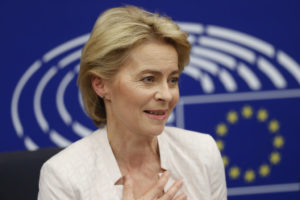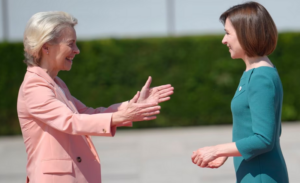 The European Commission is doubling its efforts to show that Europe has learned the lessons of the past and will avoid now, after the „Great Isolation”, the mistakes made during the „Great Recession”.
The European Commission is doubling its efforts to show that Europe has learned the lessons of the past and will avoid now, after the „Great Isolation”, the mistakes made during the „Great Recession”.
According to Euractiv, proposals to exit the coronavirus crisis bear no resemblance to the plan put in place after the 2007-2008 financial crisis when the Commission’s austerity insistence – the way imposed to balance public accounts – led to a sharp recession in 2012.
Conditionalities attached to the economic recovery fund, with a proposed budget of 750 billion – partly grants, partly loans – indicate that the EU is willing to give up, even temporarily, the strict accounting approach applied, for example, in the case of Greece’s economic rescue.
However: The Commission is developing a mechanism in which, in exchange for the access to funds, member states are pushed to the path of adapting to Green Deal and Digital Agenda paradigms.
In order to win the support of the group of 4 „austere” countries (Netherlands, Austria, Denmark and Sweden), Ursula von der Leyen said that this fund will not be a „Swedish buffet” where there are European funds on the table.
The new investment Bible: recommendations of the European Semester
According to the plan announced by the Commission, member states have limited freedom to choose what investments to make and what reforms to implement to save their economies, an important criterion for Brussels being that of actions that do not only save but transform an economy.
First, member states would have to justify to the Commission how national rescue plans are in line with the specific challenges and priorities identified by the European Semester, an EU mechanism for coordinating national economies, which contains though recommendations that go beyond the economic area.
European Commission Vice-President Valdis Dombrovskis announced that, besides complying with country recommendations, other indicators will also need to be followed by member states, such as the contribution of the project for which funding is requested to potential growth, job creation, social and territorial cohesion.
Secondly, the Commission has indicated its intention to „cooperate” with member states in the process of drawing up investment and reform plans, so as to eliminate the „risk of rejection” of projects on the grounds of non-compliance with certain criteria, as has been the case so far with insufficiently substantiated national projects coming to the Commission, especially from the East.
In an interview with Euractiv, Budget Commissioner Johannes Hahn said that under the new project development structure he is not worried that national plans could be rejected by the Commission, but he has concerns about how member states would implement the approved projects.
Complicated project approval mechanism: EU 27 approves national plans
Johannes Hahn said that the EU should ensure that economic recovery funds are spent according to the approved plans and indicators set for the release of funding instalments are actually met.
Consequently, the Commission, to the surprise of all experts, proposes that member states are involved in approving the national plans, following a procedure which is vague for now – „comitology”.
In principle, the EU-27 would issue a mandatory opinion to the Commission on the validation of each national investment and reform plan, including targets and indicators, for accessing the funds.
This system proposed by the Commission will certainly be one of the hotspots in the negotiations – the measure, seen as precautionary from a Northern European perspective, is considered unfair, even discriminatory, in the South and East.
However, the proposed system for approving the national plans is not discretionary, as the approval would be reached based on a qualified majority – at least 15 member states, representing at least 65% of the EU population.
It is a solution of relative balance given that the states which are most likely to be against more „relaxed” plans are not at the top of the rankings in terms of population, so they could very easily find themselves having their own plans boycotted by the states on which they want to impose their will. That’s true Austria, the Netherlands, Denmark and Sweden are compensating the smaller population with an efficient system of alliances at the European level…
In addition, the pressure from the Commission to commit at least 60% of the funds in the first two years after the initiative is launched, in order to urgently stimulate European economies, does not recommend turning each national plan into an endless negotiation.
Vice-President Dombrovskis said he does not expect the „micromanagement” of national plans, mentioning that member states cannot impose on another member state the requirement to reform national labour and pension systems in exchange for the access to money.
Valdis Dombrovskis stated that the procedure is intended to ensure „consistency” between investment and reform plans so that each member state is treated fairly.









